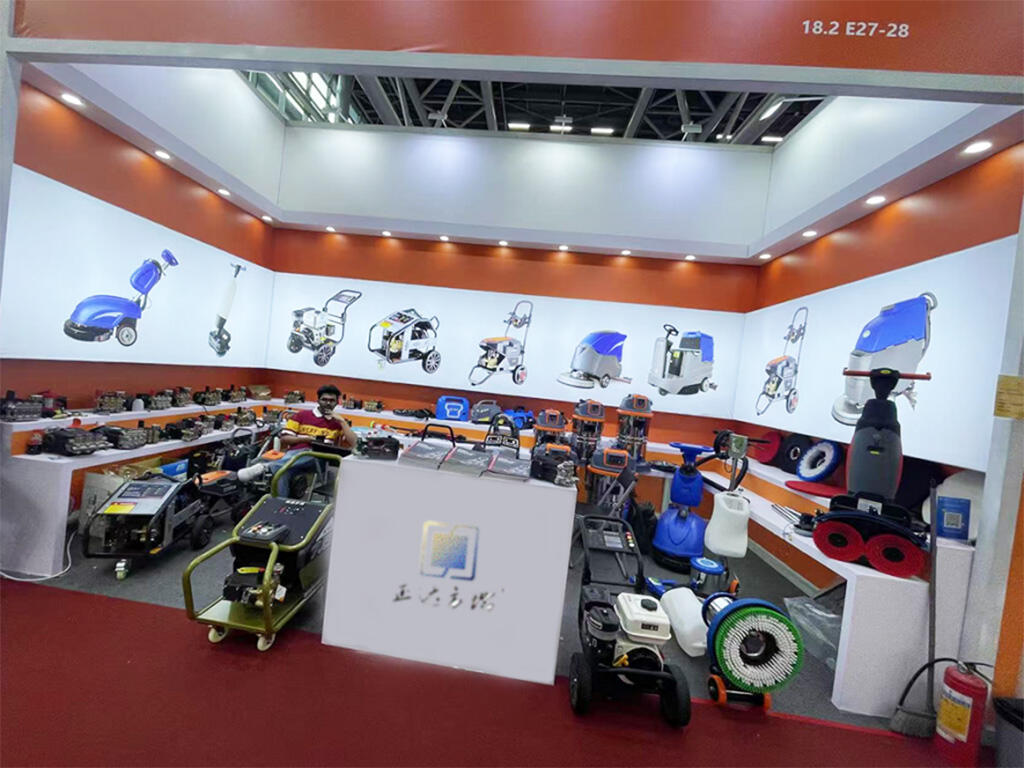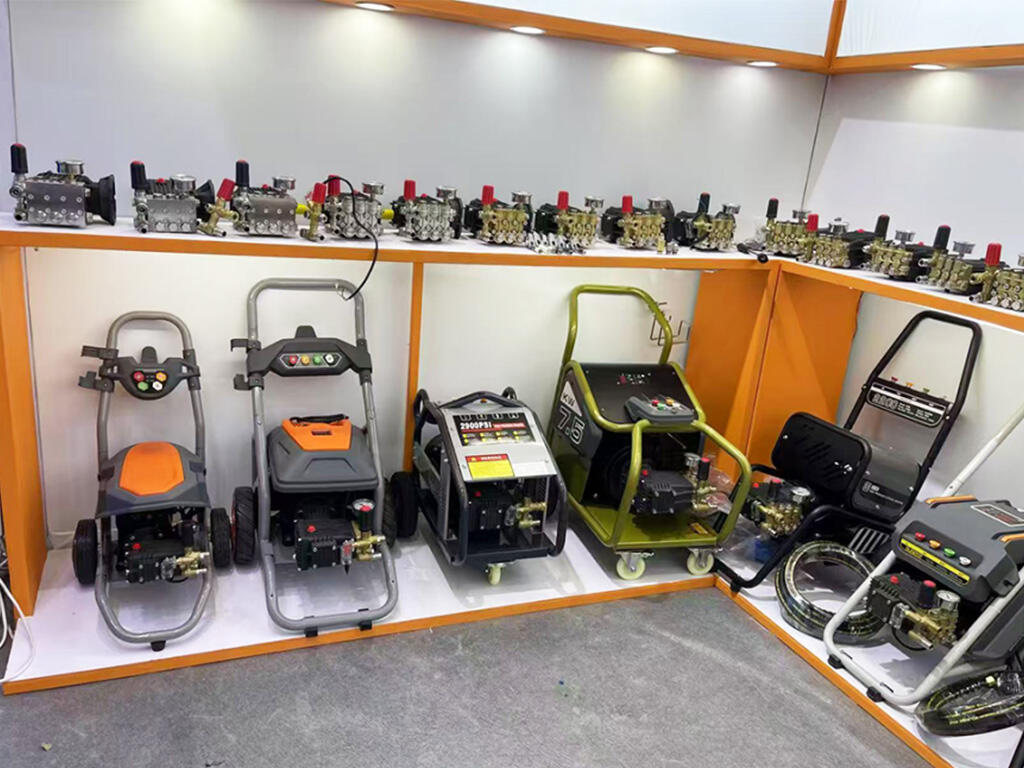Food and Beverage Industry: Sanitation, Compliance, and Efficiency
Stringent Sanitation Standards Driving Industrial Cleaning With High Pressure Washers
Sanitation in food processing areas needs around 15 to maybe 30 cleaning cycles each day to stop those pesky biofilms from forming and causing cross contamination problems. High pressure washers can hit between 1,200 and 3,000 pounds per square inch which makes them really good at knocking off stubborn residue stuck on conveyor belts, inside tanks, and even those awkward spots that are tough to reach. According to some research published last year in Food Control, plants that switch to these high pressure systems see their ATP bioluminescence tests come back compliant almost 97% quicker than when workers clean things by hand. That kind of speed saves time and money while keeping food safety standards where they need to be.
Compliance With FDA and HACCP Through High-Pressure Washer Systems
Automated high-pressure systems document water temperature, chemical dosing, and cycle times—critical for Hazard Analysis Critical Control Point (HACCP) protocols. USDA-certified plants now mandate washer-integrated sensors that automatically log data into FSMA-compliant tracking software, reducing audit preparation time by 40%.
Case Study: Effective Cleaning in Meat Processing Plants Using High Pressure Washers
A Midwest poultry processor reduced Listeria detection rates by 30% after retrofitting processing lines with 180°C hot water high pressure washers. The system’s rotating nozzles eliminated fat deposits in drain channels—a frequent FDA Form 483 violation—while cutting nightly cleanup shifts from 4 hours to 75 minutes.
Managing Organic Residue and Shifting Toward Eco-Friendly High Pressure Cleaning Solutions
New enzymatic detergents combined with 75°C high pressure rinses dissolve dairy proteins four times faster than chlorine-based cleaners. Seven states now require food plants using recirculating high pressure systems to reduce water consumption below 1.5 gallons per square foot, accelerating adoption of closed-loop washer models.
Manufacturing and Industrial Maintenance: Cleaning Heavy Machinery and Facilities
Role of High Pressure Washers in Machinery, Floor, and Surface Decontamination
High pressure washers address persistent contamination challenges in manufacturing, removing grease, metal shavings, and chemical residues from industrial machinery, production floors, and storage surfaces. Operating at 2,000–4,000 PSI, they penetrate complex equipment geometries, reducing manual scrubbing time by 60% while minimizing slip hazards caused by oil buildup.
Integration With Preventive Maintenance Schedules for Operational Efficiency
Leading plants synchronize high pressure washer use with scheduled equipment downtime, cleaning components like conveyor belts or CNC machines during maintenance windows. This dual-purpose strategy reduces unplanned outages—57% of facilities report fewer production delays after adopting integrated cleaning protocols.
Balancing Water Usage and Cleaning Effectiveness in Industrial Environments
Modern high pressure washer systems reduce water consumption by 30–50% compared to traditional hosing through adjustable nozzle settings, recirculating filtration for wastewater reuse, and flow sensors that shut off pumps during idle periods.
Data Point: 68% of Manufacturing Plants Use High Pressure Washers Weekly (OSHA 2022)
OSHA’s 2022 analysis confirms weekly high pressure washer deployment in over two-thirds of U.S. manufacturing facilities, with automotive and metalworking plants averaging 12–15 hours of runtime weekly. Facilities using automated systems report 41% faster compliance with safety inspection benchmarks.
Transportation and Fleet Operations: Auto Shops, Aviation, and Public Transit
High Pressure Washer Efficiency in Auto Detailing and Fleet Washing Operations
Pressure washers are game changers for auto shops and logistics operations because they deliver serious power (think around 4,000 PSI) through those specially designed nozzles. The real magic happens when looking at what these machines can do compared to old fashioned scrubbing. They blast away all sorts of nastiness from roads - grime, oil stains, even stubborn brake dust - and get the job done roughly twice as fast as someone would with just a brush and bucket. That kind of speed makes a big difference for fleet operators who need to clean dozens of trucks every day. Take a company doing 50 washes or more weekly? Those high pressure units start paying for themselves pretty quickly, saving somewhere around eighteen grand each year on both water usage
Frequently Asked Questions
How do high pressure washers improve sanitation in the food industry?
High pressure washers enhance sanitation by effectively removing stubborn residues and biofilms, minimizing cross contamination. They ensure compliance with food safety standards by speeding up cleaning processes and achieving quicker ATP bioluminescence test results.
What are the benefits of using high pressure washers for manufacturing maintenance?
In manufacturing, high pressure washers efficiently clean machinery and surfaces, reducing manual scrubbing time and minimizing slip hazards. They integrate with preventive maintenance schedules to reduce unplanned outages and enhance operational efficiency.
How does high pressure washing benefit fleet operations?
Fleet operations benefit from high pressure washing by reducing cleaning time for vehicles, improving removal of road grime, oil stains, and brake dust. This efficiency saves costs and resources, making it a valuable asset for logistics operations.
Table of Contents
-
Food and Beverage Industry: Sanitation, Compliance, and Efficiency
- Stringent Sanitation Standards Driving Industrial Cleaning With High Pressure Washers
- Compliance With FDA and HACCP Through High-Pressure Washer Systems
- Case Study: Effective Cleaning in Meat Processing Plants Using High Pressure Washers
- Managing Organic Residue and Shifting Toward Eco-Friendly High Pressure Cleaning Solutions
-
Manufacturing and Industrial Maintenance: Cleaning Heavy Machinery and Facilities
- Role of High Pressure Washers in Machinery, Floor, and Surface Decontamination
- Integration With Preventive Maintenance Schedules for Operational Efficiency
- Balancing Water Usage and Cleaning Effectiveness in Industrial Environments
- Data Point: 68% of Manufacturing Plants Use High Pressure Washers Weekly (OSHA 2022)
- Transportation and Fleet Operations: Auto Shops, Aviation, and Public Transit
- High Pressure Washer Efficiency in Auto Detailing and Fleet Washing Operations
- Frequently Asked Questions




